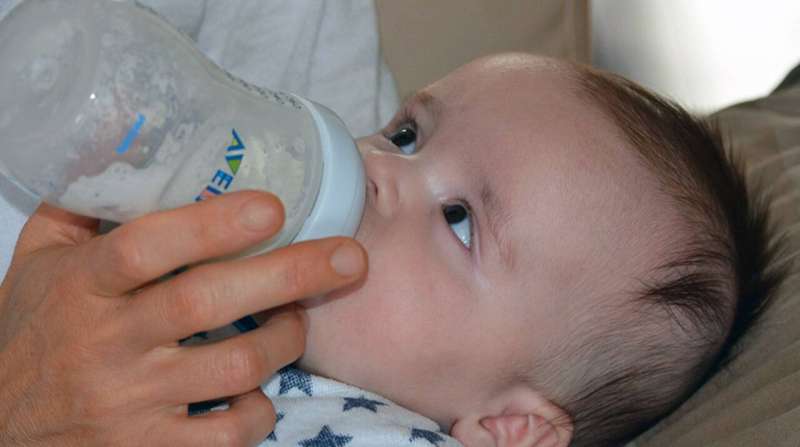
Amid the coronavirus pandemic, the majority of parents struggling to find baby formula have resorted to dangerous feeding practices for their infants, which could negatively impact the health of their young children, according to a new study conducted by the UC Merced Lactation Attachment Technology and Child Health (LATCH) Lab in collaboration with UC Irvine and the University of Toronto.
To document the effect of the pandemic on changes in feeding practices, Department of Psychological Sciences professor Jennifer Hahn-Holbrook, the senior author, and graduate student Jessica Marino, first author, conducted an online survey with more than 300 U.S. caregivers of infants. The preprint of the paper was published in the open access archive SocArXiv.
The study suggested that the pandemic had a greater negative impact on infants whose families relied on formula rather than human milk. Participants cited formula being sold out, having to travel to multiple stores and high costs as the top challenges in obtaining formula.
The results showed that 69% of families who had trouble accessing formula reported using potentially harmful formula-feeding practices. Families with lower incomes were more likely to have problems acquiring formula, leading them to face the impossible choice of letting their babies go hungry or feed them with dangerous substitutes, which can cause infant malnutrition and even death in extreme cases.
“Given how widespread formula shortages are now, this is bad news for babies who are likely getting suboptimal nutrition as parents scramble to make formula last by resorting to dangerous substitutes such as adding extra water, juice, cow’s milk or rice cereals,” said Hahn-Holbrook, who is a member of the Health Sciences Research Institute.
One out of three formula-feeding families reported using a problematic feeding practice during the COVID-19 pandemic, likely due to formula shortages and financial strain.
“This data was collected between May 2020 and March 2021, when formula-shortages were problematic but not as endemic as they are today, so rates of these problematic feeding practices are likely even higher today,” Marino said.
Researchers note that the most common change made by breastfeeding families during the pandemic was feeding infants more human milk because of its known benefits for children’s immune systems. This increase was likely due in part to the rise in remote work opportunities for mothers and caregivers due to lockdowns, closures of schools, day cares and other institutions and social distancing policies.
While additional studies with larger sample sizes and more focus on racial/ethnic minorities are urgently needed, the researchers said, they are hopeful that this, along with previous studies, will help put a spotlight on the need for more support to protect young children’s nutrition.
“As crises arise more often because of climate change, the government has a responsibility to enact policies to support breastfeeding families and ensure adequate supply and equitable access to infant formula when breastfeeding is not possible,” Hahn-Holbrook said.
Source: Read Full Article
